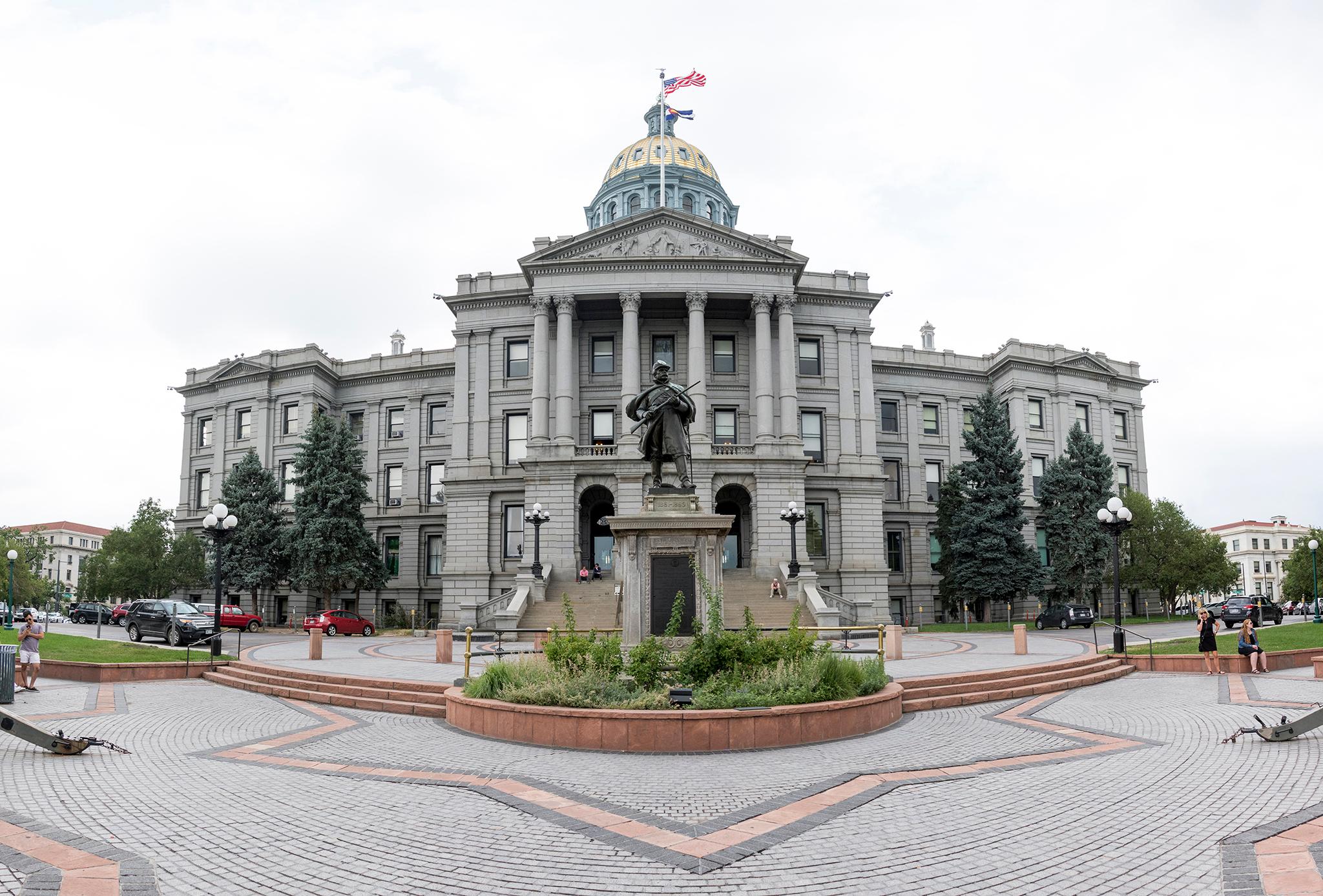

For years, Colorado state workers have sought the right to collectively bargain. It looks like Democratic lawmakers could make that happen this legislative session — if Gov. Jared Polis goes along with the plan.
House Bill 19-1273 cements the right of state employees to form unions, which could represent either single departments or state workers as a whole. It also outlines a process for those organizations to negotiate enforceable contracts over wages, benefits and work conditions.
Advocates argue collective bargaining could help address low pay and chronic understaffing at state agencies. Opponents worry it would limit the power of lawmakers and taxpayers over spending, putting pressure on other areas of the budget.
The legislation builds on a 2007 executive order from then-Gov. Bill Ritter, which gave state workers the ability to form "employee partnerships." The organizations are basically unions, but they tend to lack the ability to call strikes or enter binding negotiations.
The legislation would turn Ritter's order into law — and expand it.
If it passes, about 26,500 workers would gain collective-bargaining rights, according to a nonpartisan legislative analysis. That number accounts for the vast majority of the state's "certified workforce,” which includes employees in executive branch offices and departments. Other state employees — such as legislative aides, judicial workers and university faculty — would not be covered.
Many limits on public-sector unions remain under the bill, though. No worker would be forced to join partnerships or pay dues. Strikes would also not be allowed under any circumstance.
Hilary Glasgow is the executive director for Colorado WINS, the state employee union and the main force behind the bill. She said that Colorado is just one of 16 states where state workers lack collective-bargaining rights, which she said has led to deep problems.
"It's not just about state jobs. It's about the ability to deliver quality state services," Glasgow said.
In other words, proponents think the change could help stem a staffing crisis in Colorado’s state government. A white-paper by the Economic Analysis and Research Network, a Colorado WINS partner, notes that turnover among classified state employees has increased 73 percent in the last decade, to the point where about one in every five jobs is vacant. The analysis estimates replacing around 4,000 employees in the last fiscal year cost Colorado taxpayers $48 million.
At the bill’s first committee hearing, state Rep. Daneya Esgar, the Pueblo Democrat sponsoring the legislation, said the consequences for Colorado are more than financial.
"High turnover might not only be costly, but potentially dangerous," Esgar said.
State workers went on to testify in support of the bill, detailing the consequences of short staffing in government work. They described long, sleepless shifts in mental health care facilities and along highways.
Collective-bargaining rights have been a flashpoint in other states like Wisconsin, where Republicans limited the negotiating ability in 2011. Former Gov. Scott Walker led the effort, arguing benefits for many public-sector workers were overly generous and a burden on taxpayers.
Some Republicans brought up similar objections during the recent committee hearing on the Colorado bill.
"My overriding concern is the conflict that exists for these public sector unions,” said state Rep. Stephen Humphrey, a Republican from Severance. “They tend to drive up costs for the state and take power from the citizens and the legislature — giving it to the unions.”
It's not clear just how much the policy could take from state coffers. Analysts estimate that it would cost $660,758 this upcoming fiscal year and $770,094 the year after to help state offices regulate public-sector unions and manage negotiations. What can't be estimated is how much more the state might end up devoting to higher pay and improved benefits.
Glasgow said Colorado lawmakers shouldn't be concerned about losing their budgetary power to public-sector unions. Under the bill, the governor's office would be responsible for negotiating any contracts with state workers. Those agreements would be reflected in the governor's budget requests, but the state legislature would maintain its ultimate power over the purse strings.
The bill passed its first hearing on a party-line vote and it’s now awaiting its next committee. Glasgow said she's confident the bill will make it through the Democratic-controlled legislature, but the message from the governor’s office is less encouraging.
A spokesperson for Polis provided this statement on the bill:
"Our staff and the executive agencies have reviewed the legislation and have some concerns about the ramifications for both the budget process and how it interacts with the classified system. We are actively working with stakeholders and sponsors on the specifics of the bill. We appreciate everything our state employees do for Colorado."
However, Glasgow remains optimistic.
"We all have the same goals, which is to provide the state services that Colorado needs," she said. "We're just working together on ... the details."
Editor's Note: This story has been updated to clarify that university faculty would not be covered. Some university staff are part of the state's classified system.









